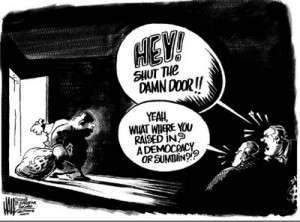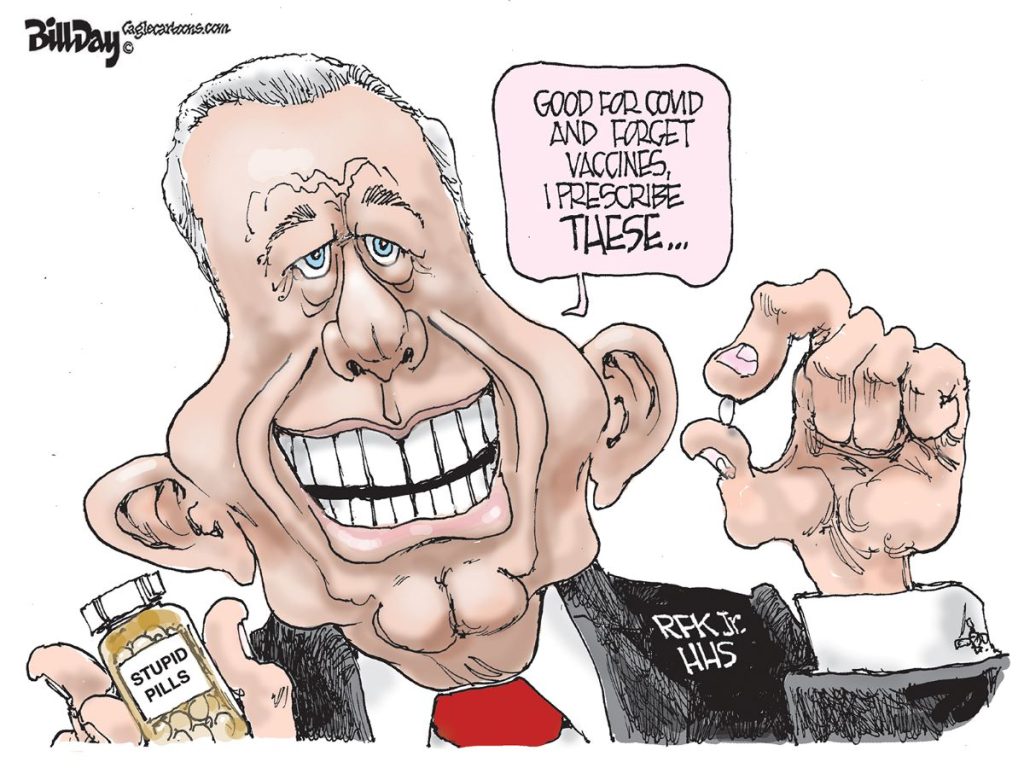Anytime there is a choice in Memphis and Shelby County governments between secrecy and transparency, it should be a no-brainer.
That’s why we hope that Memphis City Council, in a Tuesday vote, bats aside the suggestions by its myopic economic development officials – supported by the Greater Memphis Chamber of Commerce – to close some public records because it would make companies seeking incentives happier.
There’s a reason that public records are called that: first, they are in fact the property of the public and second, they should always be open to the public.
Keeping the Balance
A few weeks ago, we cautioned our local governments against buying into the propaganda from the special interests that can never get enough in incentives and special privileges from government. Just a few weeks ago, it was the suggestion that the law involving the transfer of property to the Industrial Development for as long as a tax freeze is in effect has a “chilling effect” on business recruitment. This actually led city and county to recommend an amendment to the state constitution. Now, it’s imperative that we close some public records that purportedly contain proprietary information about companies.
We all agree that we have to remain competitive, but Memphis’s lack of worthiness and desperation for new jobs combine to create a risk that we won’t maintain a healthy balance in our business recruitment. Again, it seems like we’re majoring in minors while there are really relevant issues that deserve attention to get our economy moving in the right direction again. And yet, economic development types would have us think that all of our problems stem from these pesky IDB rules to protect taxpayers’ interests.
Like the axiom says, if you’re not willing to walk away from the table, you’re not really negotiating. Economic development agreements have to be real negotiations, and as part of it, city officials have to stand firm on its principles: living wages, real economic impact statements (unlike those issued today), and most of all, transparency. Businesses are like most special interests: if they give you a list of 10 things they want and you do all 10, there will always be 10 more.
Secret Government
It’s incomprehensible that city and county’s own officials delude themselves into thinking there’s a real problem here that needs solving, but it’s even more incomprehensible that they would be unwise enough to call on the Wharton Administration – that has called transparency its highest priority – to say one thing and do another.
Here’s the thing: these businesses are asking for us, the taxpayers, to waive our taxes. We already have an unquestionable overuse of tax waivers here, which amount now to more than $40 million a year, and with Electrolux, we’re even kicking in $40 million as an extra incentive. This means that for the next 20 years, local government will be paying out more than $3 million a year to pay this debt.
In other words, we think that we already have a business-friendly government, but that doesn’t mean that we have to do everything business wants. In this case, economic development officials want the “proprietary records” of the businesses to be closed to the public, but this is like going to the bank and telling the bank what its policies ought to be.
The Public Bank
If companies want us to waive our taxes and to give our money as incentives, it’s not up to them to make the rules of the game. We own the bank, and in this case, it is a public bank, and everything the bank has is ours – and it is public.
All in all, this is a false crisis. Companies have been submitting information to government for decades, and if this hasn’t come up before, there’s no reason that it should be coming up now. We understand that the Chamber of Commerce is unhappy about the premature release of information about meetings with Kruger Inc. of Montreal, a paper products firm, and there’s nothing more awkward than when the inevitable call comes from the prospect aggravated by the news article.
But there are ways that government has always dealt with these issues, and there are simple answers to protecting the names of prospects and information that is considered proprietary. There have been numerous meetings over the years when information was passed around and taken back up when it ended. There’s been information shared with government officials in meetings at the Chamber, which keeps the documents because it’s not covered by the public records act. There have been numerous meeting entries on mayors’ calendars that have been in code to protect prospects.
Vote No
As a result, this is largely a solution in search of a crisis. That, most of all, is why Memphis City Council should vote down anything that closes up government records for any reason.
If there is any theme these days that resonates with taxpayers, it is that we own government, its job is to serve and protect our interests, and we all want government to be more open and transparent.
It may sound benign to ask that local government can hide “proprietary” business information from the public, but it’s hard to imagine that the public trusts a bureaucrat’s definition of what is proprietary. Instead, we predict conversations in which companies ask to shield all kinds of information and economic development officials, in a rush to curry favor, will be loathe to deny them.
Culture of Secrecy
Economic development officials claim that they only want to mirror similar exemptions to that exist in in Tennessee law for state economic development officials, but we hardly hold state government as the paragon of public protection. It’s a rare year that someone in Nashville doesn’t suggest that some public record is hidden from the public – most recently, the names of people with gun permits – or watering down the public meetings law.
We think President Barack Obama got it right when his first executive order was about transparency and accountability. The President said: “For too long, the American people have experienced a culture of secrecy in Washington, where information is locked up, taxpayer dollars disappear without a trace, and lobbyists wield undue influence. For Americans, business as usual in Washington has reinforced the belief that the government benefits the special interests and the well connected at the expense of the American people.”
This is a chance for Memphis City Council to stand tall – and on the side of open government.
Rather than support legislation to close the books on some business information, we think City Council should form a Committee for Open Government that guarantees that city government has an unshakeable commitment to transparency.





I agree.
This is so, so true. Either you believe in open government or you don’t. This will tell us a lot about Mayor Wharton, not just City Council.
This is the high price of democracy. It is easily preached, but not so easily practiced. SCM applauds President Obama for his ‘transparency’ executive order; indeed, the President said he was absolutely committed to transparency in government. He has ignored his own transparency pledge numerous times, demonstrating how difficult it is to practice transparency.
Open government is a goal — possibly an unachievable one — but a goal nonetheless. We should continue to march toward the goal. To do otherwise is to undermine democracy. I think it’s abundantly clear what the Greater Memphis Chamber thinks of democracy.